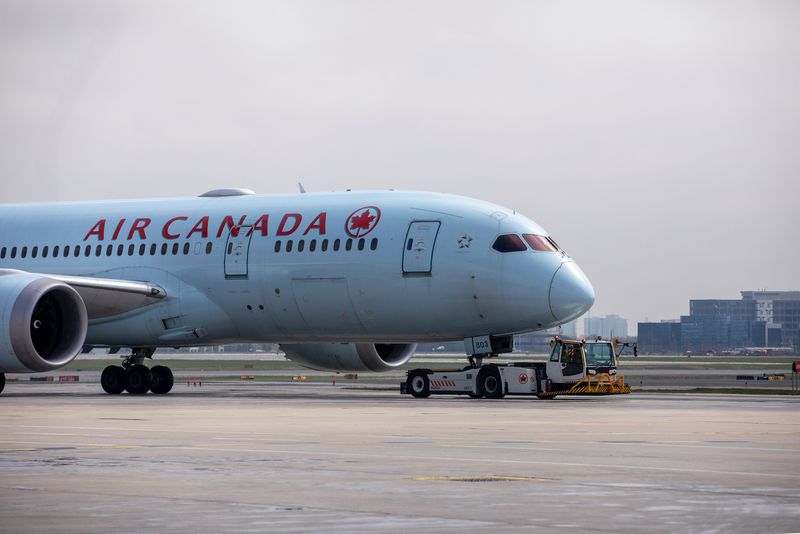(Reuters) - (This August 11 story has been corrected to clarify that the name on the website, Air Canada (TSX:AC) Pilots Association (ACPA), is no longer used as the group merged with ALPA and changes the name of the union in paragraph 5)
Air Canada reported a better-than-expected quarterly profit on Friday compared with a year-ago loss and sees solid passenger bookings into early 2024 as the country's largest airline cashes in on strong international travel demand.
A rush by North American travelers to make up for lost time during the pandemic has bolstered earnings for legacy carriers, with international destinations enjoying especially high demand.
But North American carriers face pressure from higher labor costs, with pilots at U.S. legacy carriers nabbing steep pay increases in new contracts or tentative agreements.
Air Canada pilots anticipate sitting down for labor talks with the carrier in the next couple of weeks, a union official said. Their contract expires at the end of September.
Charlene Hudy, chair of a union group representing Air Canada pilots, said some of the Canadian airline's pilots earn up to 300% less than their U.S. counterparts, depending on categories like seniority and type of aircraft.
"We have to be in the same ballpark as our American colleagues," Hudy said in an interview.
Air Canada raised the lower end of its earlier 2023 guidance of C$3.5 billion to C$4 billion for earnings before interest, taxes, depreciation and amortization (EBITDA) to C$3.75 billion.
Chief Executive Mike Rousseau said advanced passenger bookings remain solid for the balance of 2023 and into the first quarter of 2024.
Montreal-based Air Canada said it expects to grow available seat mile capacity for 2023 by 21% compared with a year earlier.
The carrier wants to fly more American passengers on non-direct international routes through stops at its Canadian hubs. So-called sixth freedom revenues, generated from carrying passengers from a second country to a third via a stop in a local hub, were the strongest in the second quarter that Air Canada has ever achieved, the carrier said.

For the quarter ended June 30, Air Canada reported adjusted net income of C$664 million ($493.97 million), or C$1.85 per diluted share. Analysts on average had expected adjusted net income of C$289.8 million or 68 Canadian cents a share according to data from Refinitiv.
For 2023, the carrier is now expecting costs per available seat mile (CASM) of about 0.5% to 1.5% above 2022 levels. In May, Air Canada said it expected CASM of about 0.5% to 2.5% below 2022 levels.
